The Independence(s) Lecture Series
The Independence(s) Lecture Series, sponsored by Lehigh University’s Latin American Studies Program, showcases leading scholars whose investigatory pursuits exemplify the diversity of contemporary debates on Latin American culture. The speakers in this series are recognized academics whose research demonstrates the complexity of the study of Latin America from a variety of different disciplines. The Independence(s) Lecture Series thus provides the Lehigh community with a multiple points of entry to better appreciate the region defined as Latin America.
The Independence(s) Speakers
Dr. Salvador Vidal-Ortiz - Fall 2020
Associate Professor, Sociology, American University
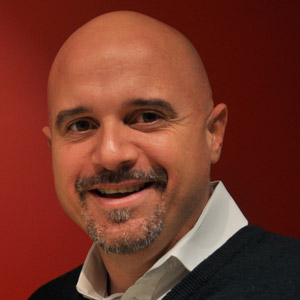
Dr. Salvador Vidal-Ortiz is associate professor of sociology at American University, where he also teaches queer studies and Latinx studies for the Critical Race, Gender & Culture Studies Collaborative. He coedited The Sexuality of Migration: Border Crossings and Mexican Immigrant Men (NYU Press, 2009) and Queer Brown Voices: Personal Narratives of Latina/o LGBT Activism (University of Texas Press, 2015), co-authored Race and Sexuality (Polity Press, 2018), and co-edited in Spanish, “Trans-ing Knowledges” – on education and trans people in Argentina (Universidad Nacional de La Plata, 2018). He is currently working on his manuscript on Santería, race, gender and sexuality, tentatively titled: An Instrument of the Orishas: Racialized Sexual Minorities in Santería, and editing a Gender/Sexuality/Migration Handbook for Routledge/Taylor & Francis. Along with Katie Acosta and Jessica Fields, he tri-chaired the 2018 American Sociological Association’s Sexualities preconference “Sexualities, Race and Empire: Resistance in an Uncertain Time.” He was a Distinguished Scholar-in-Residence at College of the Holy Cross, in Gender, Sexuality, and Women’s Studies.
Dr. R. Andrew Chesnut - Fall 2019
Professor, Bishop Walter Sullivan Chair of Catholic Studies, Viriginia Commonwealth University
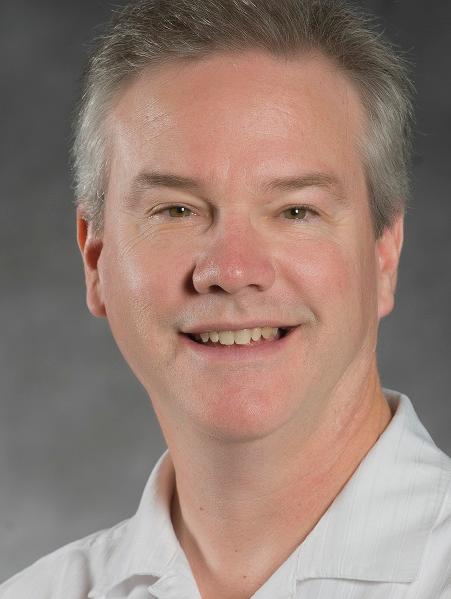
R. Andrew Chesnut earned his Ph.D degree in Latin American History from the University of California, Los Angeles in 1995 and joined the History Department faculty at the University of Houston in 1997. He quickly became an internationally recognized expert on Latin American religious history Professor Chesnut was selected as the inaugural recipient of the Bishop Walter Sullivan Chair in Catholic Studies at VCU in 2008. He authored the first and only academic book in English on the Bony Lady “Devoted to Death: Santa Muerte, the Skeleton Saint”. (OUP, 2012 and 2017).
Dr. Kate Kingsbury - Fall 2019
Professor, University of Alberta

Kate Kingsbury obtained her doctorate in Anthropology at the University of Oxford. She currently teaches at the University of Alberta. Her research focuses on religion, in particular exploring its entanglement with gender and politics.Her forthcoming book “Daughters of Death: The Female Followers of Santa Muerte”, co-authored with Andrew Chesnut, will explore the unique appeal that Santa Muerte has to women in Mexico and across the Americas.
Dr. Sallie Hughes - Fall 2018
Associate Professor, Journalism and Media Management, University of Miami
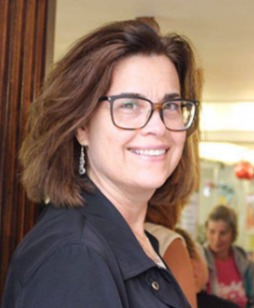
Sallie Hughes is an Associate Professor at The University of Miami in the Department of Journalism and Media Management, and the Faculty Director of the University of Miami Institute for Advanced Study of the Americas, which is the university’s cross-university research institute on Latin America, the Caribbean and the diasporic communities of those regions. Her research primarily focuses on journalism and society in Latin America, particularly Mexico, and in recent years the enormous physical and psychological risk to journalists in Latin America and elsewhere in the Global South. Before earning her PhD, she was a journalist in Mexico and in the general market and Latino-oriented media of the United States.
Dr. Juan Pablo Dabove - Fall 2017
Professor, Latin American Cultural History, University of Clorado, Boulder

Juan Pablo Dabove is Professor of Latin American Cultural History at the University of Colorado Boulder. A native of Argentina, he has worked and published extensively on the place of outlaws (in particular rural bandits and rural insurgents) in the Latin American imagination. On this topic he has published Nightmares of the Lettered City: Banditry and Literature in Latin America, 1816-1929 (2007), and Bandit Narratives in Latin America: from Villa to Chavez (2017). He is currently working on a history of the Gothic in postcolonial Argentine literature, film, graphic novel and political discourse.
Dr. Ana Y. Ramos-Zayas - Spring 2017
Professor, Black and Latino Studies, Baruch College
Psychology (Social Critical Psychology Program), CUNY Graduate Center

An anthropologist by training, Ramos-Zayas is also affiliated with the Center for Latin American, Caribbean, and Latino Studies. She occupied the Valentin Lizana y Parrague Endowed Chair in Latin American Studies upon arriving at Baruch in 2012.Ramos-Zayas’ body of work aims to understand and disentangle systems of power and privilege at a variety of scales, ranging from U.S. imperial and white supremacist politics to the ways in which individuals and communities make sense of everyday forms of power and subordination. Issues of social justice and the intersection of intimate worlds and political economic structures are fundamental concerns in her empirical analyses.
Dr. Ramos-Zayas will visit Lehigh on March 22 and lecture on "Sovereign Parenting” in Affluent Latin American Neighborhoods: Race, and the Geopolitics of Childcare in Ipanema (Brazil) and El Condado (Puerto Rico)
Dr. Paul Gootenberg - Spring 2016
Distinguished Professor of History and Sociology, Stony Brook University
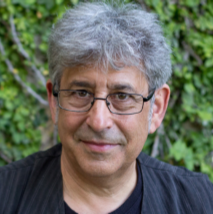
Professor Gootenberg’s research and graduate training interests span most of modern Latin America, with special strengths in Andean and Mexican history and in questions of historical sociology. His current writing centers around the history of drug commodities, especially Andean cocaine as a global drug. He is also interested in historical dimensions of Latin American inequalities. Gootenberg helped to establish Stony Brook’s innovative interdepartmental workshop, the Initiative in Historical Social Sciences (IHSS), and serves as a coordinator of the monthly New York Latin American History Workshop, which brings together students and faculty from Columbia, NYU, CUNY and Stony Brook. He is also active in a number of interdisciplinary research programs at the (Brooklyn-based) Social Science Research Council (SSRC).
Dr. Gootenberg visited Lehigh in April 2016 and lectured on From Teonanácatl to Miami Vice: Latin America's Contribution to World Drug Culture.
Dr. Alejandro Anreus - Fall 2014
Professor of Art History and Latin American/Latino Studies, William Paterson University
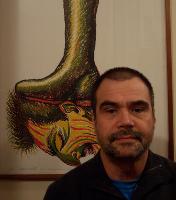
Alejandro Anreus received his PhD in art history from the Graduate Center, CUNY. He was curator at the Montclair Art Museum (1986-1993) and the Jersey City Museum (1994-2001). Since Fall 2001 he has been professor of art history and Latin American Studies at William Paterson University. He is the author of more than sixty catalogue essays and refereed articles all dealing with the art of Latin America, Latino Art, African American Art and art and politics. He is the author of "Orozco in Gringoland" (2001), editor and contributor to "Ben Shahn and the Passion of Sacco and Vanzetti" (2001), "The Social and The Real" (2006), "Mexican Muralism, A Critical History" (2012). His monograph on social expressionist Luis Cruz Azaceta will be published July 2014 as part of the "A Ver" monograph series (UCLA Chicano Studies Press). Currently Dr. Anreus (with co-editors Robin A. Greeley and Megan Sullivan) is completing work on the Blackwell Companion to Latin American and Latino Art, and beginning work on a manuscript entitled "Havana in the 1940s: Artists, Critics and Exhibitions." His articles have appeared in Art Nexus, Art Journal, Third Text, Encuentro de la Cultura Cubana and the digital magazine cubaencuentro.
Apart from his research projects, Dr. Anreus has been a human rights activist in the field of Latin America.
Dr. Anreus visited Lehigh University in September 2014 and lectured on Mexican Muralism and its Hemispheric Impact.
Dr. John R. McNeill - Spring 2014
Georgetown University's History Department and School of Foreign Service

John R. McNeill is a University Professor at Georgetown University's History Department and School of Foreign Service. His latest work, "Mosquito Empires: Ecology and War in the Greater Caribbean, 1640-1914," has received the Albert J. Beveridge Prize of the American Historical Association and the PROSE Award. McNeill's career and past publications have received a Toynbee Prize, a MacArthur Genius Grant, a Guggenheim Fellowship, a number of Fulbright Fellowships, and other distinguished recognitions.
His research is in the area of environmental history. He is currently working on a new book on global environmental history since 1945, which will appear with Harvard University Press in 2014 (or maybe 2015). In the years to come he hope to write a global environmental history of the Industrial Revolution and a study of the geopolitical history of fossil fuels.
Dr. McNeill visited Lehigh University in April 2014 and lectured on Revolutionary Mosquitoes in the Americas, 1776-1898.
Dr. Sara Castro-Klarén - Spring 2013
Johns Hopkins University, Latin American Culture and Literature
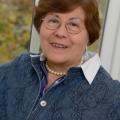
Sara Castro-Klarén, Professor of Latin American Culture and Literature at Johns Hopkins University, founded and led the Latin American Studies Program at Johns Hopkins between 1989 and 1992. Prior to her appointment at Johns Hopkins, Dr. Castro-Klarén taught at a number of educational institutions including Georgetown, Stanford, and Dartmouth, and served as Chief of the Hispanic Division at the Library of Congress for two years (1984-86). In 2000, Dr. Castro-Klarén was named to the J. William Fulbright Foreign Scholarship Board. Her publications include: "El Mundo Mágico de J.M. Arguedas," "Understanding Mario Vargas Llosa," and "The Narrow Pass of Our Nerves: Writing, Coloniality and Postcolonial Theory." She has served as editor to "Women's Writing in Latin America," as well as to "Blackwell’s A Companion to Latin American Literature and Culture," and has written numerous articles on colonial and contemporary cultural history.
Dr. Castro-Klarén visited Lehigh University in February 2013 and lectured on A New ‘American’ World: How the bio-sciences, archeology and history have transformed the meaning of human life/time in our continent.
